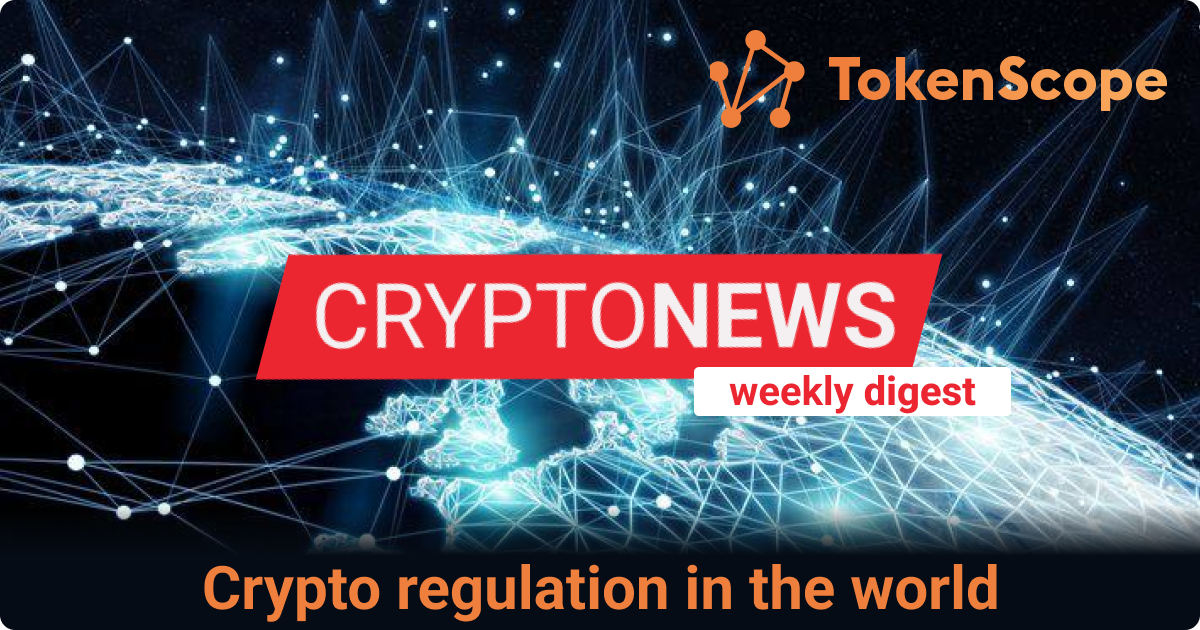Crypto regulation in the world: weekly digest #94

Hong Kong
Hong Kong initiated the trading of Bitcoin (BTC) ETFs on April 30, 2024. The six spot Bitcoin and Ether ETFs recorded a total trading volume of over HK$87.5 million ($11.2 million) on their first trading day. Among the ETFs, China Asset Management's Bitcoin ETF led in trading volume with HK$37.16 million, while Harvest Global's Bitcoin ETF saw HK$17.89 million in volume.
These figures, however, were notably lower than the $4.6 billion first-day volume recorded for the 11 spot Bitcoin ETFs in the United States in January.
Despite the lower volume, the launch of spot ETFs in Hong Kong was considered a success, marking a significant milestone in the city's crypto investment landscape.
USA
The U.S. Senator Warren has expressed concerns about sanctions circumvention using USDT, highlighting the need for strong anti-money laundering protections in the cryptocurrency industry to prevent adversaries like Iran from profiting through crypto transactions. She emphasized the inadvertent funding of rogue nations due to the lack of proper regulation in cryptocurrencies, allowing bad actors to evade U.S. sanctions and make significant profits annually. Senator Warren's focus on cutting off revenue sources for countries like Iran underscores the importance of implementing robust measures to prevent illicit activities and terrorist financing through cryptocurrencies.
Senator Warren has emerged as a prominent critic of cryptocurrency, advocating for strong regulations to curb its use for illicit purposes. She has emphasized the need for cryptocurrencies to adhere to the same rules as the traditional financial sector, particularly in terms of anti-money laundering measures. Warren's stance on cryptocurrency regulation is underscored by her efforts to introduce legislation that would bring the Bank Secrecy Act to the crypto industry, aiming to prevent adversaries like Iran from profiting through crypto transactions.
As a response to the Senator’s concerns Tether has announced it’s partnership with the U.S. blockchain analytics firm Chainalysis to monitor transactions and activity involving its USDT stablecoin.
Nigeria
Nigeria is poised to ban peer-to-peer (P2P) cryptocurrency trading, with the National Security Adviser (NSA) set to classify crypto trading as a national security threat. This move is expected to pave the way for new regulations banning P2P crypto transactions, with an official announcement anticipated soon. The rationale for the ban is linked to the Central Bank's belief that crypto traders use P2P trading to manipulate the naira via pump-and-dump strategies.
Specifically:
-
The Central Bank Governor, Olayemi Cardoso, claimed in February 2024 that Binance had facilitated $26 billion in untraceable transactions, leading to a crackdown on Binance and the freezing of over 1,000 bank accounts linked to P2P crypto transactions.
-
The Central Bank believes that crypto traders are exploiting P2P trading to artificially inflate the value of cryptocurrencies and then dump them, causing volatility in the foreign exchange market.
-
This has prompted the National Security Adviser (NSA) to classify crypto trading as a national security threat, paving the way for new regulations to ban P2P crypto transactions in Nigeria.
So in summary, the proposed ban is driven by the Central Bank's concerns that P2P crypto trading is being used to manipulate the Nigerian currency and destabilize the foreign exchange regime.
Argentina
An Argentinian lawmaker has introduced a draft bill that proposes regulating Worldcoin and its operator in Argentina. The bill aims to create a regulatory framework that would regulate the collection of biometric data and introduce punishments for any "abuse" of this data.
The key reasons cited for this proposed regulation are concerns over the privacy and transparency of how Worldcoin handles the biometric data it collects from users through its iris-scanning drives in Argentina. Lawmakers have complained that it is not clear what Worldcoin does with the scanned data it collects from thousands of Argentine citizens.
The Argentine Agency for Access to Public Information (AAIP) has also initiated an investigation into Worldcoin's data collection practices to ensure it complies with Argentina's data protection laws. The AAIP is scrutinizing Worldcoin's security protocols and data processing policies to verify if it is properly safeguarding user privacy.
Regulators all over the World have raised concerns about Worldcoin's practices, including privacy, consent, and use of the collected data, as well as compliance with data protection laws and regulations.




